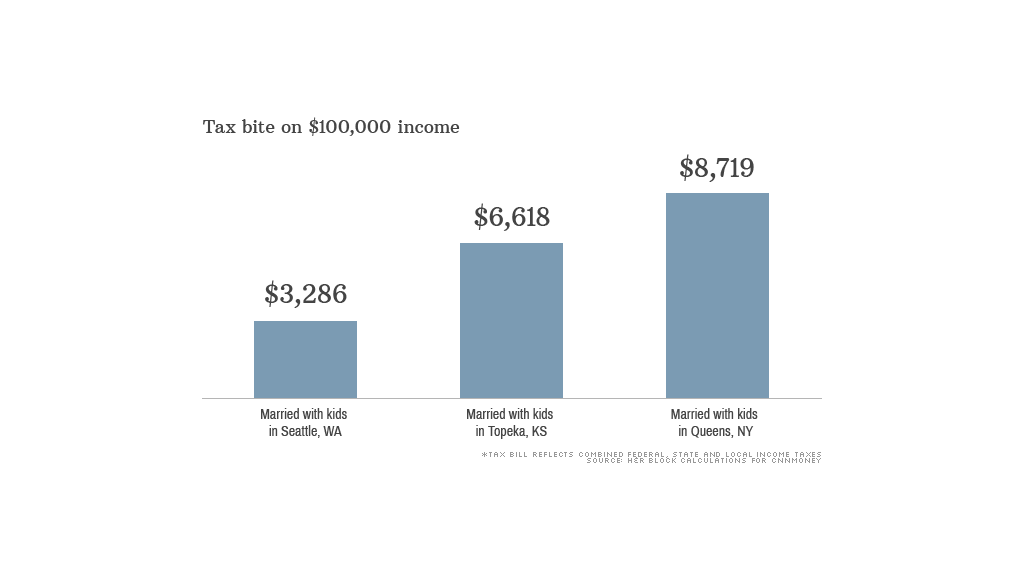
There are a lot of differences between Queens, Topeka and Seattle.
One that stands out: People making the same money in each of those places can face very different tax bills.
CNNMoney asked the Tax Institute of H&R Block to compare the combined federal, state and local income tax bill on a gross household income of $100,000 in each of the three cities.
For a dual-earner married couple with two young children, the New York City borough of Queens would deliver the biggest tax bite at $8,719. (We had to make some assumptions about the taxpayer's situation; see them below.)
The Queens couple would pay the biggest bill largely because they would be subject to some of the highest state and local income taxes in the country.
By contrast, the same $100,000 couple in Seattle would pay the smallest total income tax bill -- just $3,286 -- because Washington has no state or local income taxes.
Related: Who pays most income taxes? People 45 and up
Queens would also be the priciest place tax-wise for childless singles making $100,000, followed by Topeka then Seattle.
But the order changes a little for everybody if one isolates just the federal tax burden.

In that case, Topeka tops the list. A family of four there could owe $4,066 to Uncle Sam versus $3,076 if they lived in Queens or $3,286 in Seattle.
Here's why: State and city income, sales and property taxes affect a person's federal tax burden because they are deductible on the federal income tax return. So the lower those taxes are, the smaller the federal tax deduction and the bigger a person's federal tax bill.
Home prices, too, play a role since they determine how big a mortgage one needs and how large one's federal mortgage interest deduction will be.
A key reason why Topeka takes the No. 1 spot among the three cities in terms of the federal income tax burden is because residents there are likely to pay less in mortgage interest and property taxes than they would in either Queens or Seattle.
This story is part of a CNNMoney series exploring Americans' real tax burden. We'd love to hear how you feel about yours at #YourEconomy.
